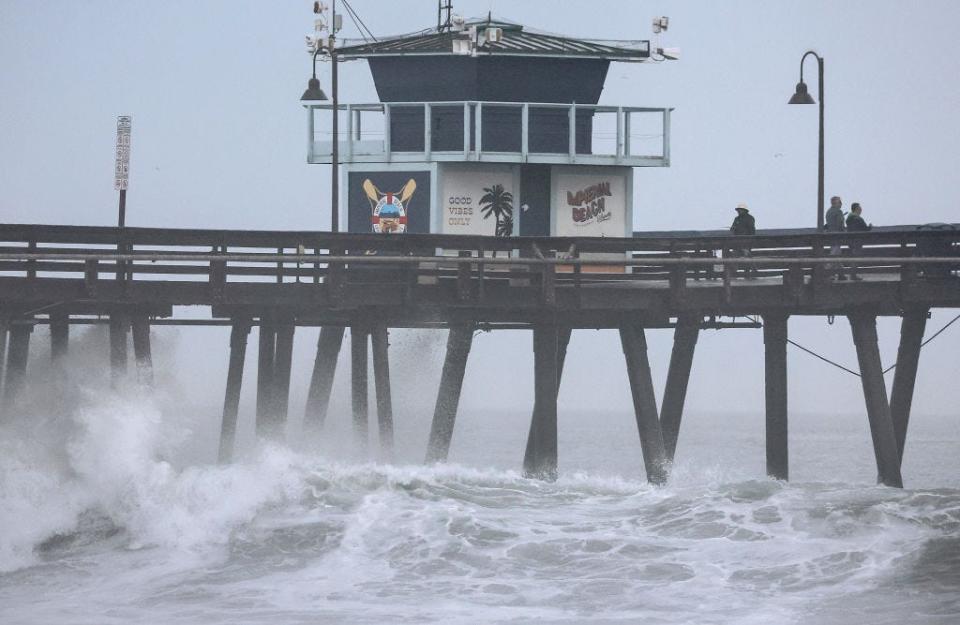As the country braces for Tropical Storm Hilary, FEMA head warns disaster relief funding is running low
- Oops!Something went wrong.Please try again later.
WASHINGTON – Ahead of Tropical Storm Hilary and other weather disasters, the administrator of the Federal Emergency Management Agency, Deanne Criswell, warned that her agency is running low on cash to respond to the deadly events in the future.
“We do still anticipate that we will have a shortage of funding at our current spending levels by mid-September,” Criswell said on CNN’s “State of the Union.” If needed, Criswell said, FEMA will push back recovery projects into the next fiscal year to ensure there is enough funding for any “immediate lifesaving needs.”
FEMA’s disaster relief funding shortfall is against the backdrop of numerous weather disasters that have resulted in hundreds of lives lost and billions of dollars in damage, including deadly wildfires in the Hawaiian island of Maui which have claimed over 100 lives alone. Southern California is facing what could be its first tropical storm in 84 years, with California Gov. Gavin Newsom declaring a state of emergency as Hilary approached the region Saturday.
Criswell attributed the series of disasters to climate change, saying it has made them “much more intense.”
“(The) threats we're seeing today are very different than what we saw five to 10 years ago, right? They are more intense, they are more complex,” Criswell said on CBS’ “Face the Nation.”
'Dangerous to catastrophic': Tropical Storm Hilary takes aim at California. Live updates

When lawmakers return to Washington in September, they have until Sept. 30 to pass 11 spending bills and fund the government to avert a shutdown. Included in those bills is new funding authorization for FEMA. Earlier this month President Joe Biden requested an additional $12 billion in funding for disaster relief from Congress.
But that $12 billion may not be enough if the country continues to see a rise in extreme weather events, Criswell said.
“As we're continuing to see the increase in these severe weather events, that dollar amount may need to go up as we go into next fiscal year, and what we're going to need to do to be able to continue to respond to the increased number of events that are happening across the nation.”
With hard-right lawmakers threatening to leverage a government shutdown in demand of deep spending cuts, it is unclear if Congress will be able to pass the spending bills and keep the government open. Biden’s request for supplemental funding likely adds another point of contention ahead of the upcoming brawl over government spending.
Sen. Bill Cassidy, R-La., said on CNN’s “State of the Union,” he “absolutely” supports additional funding for FEMA.
“Americans help fellow Americans, and we in Louisiana are so indebted to those fellow Americans,” Cassidy said, noting his home state’s multiple experiences with natural disasters. “If you’ve not yet been hit by a disaster, sooner or later, one will hit you.”
Cassidy added he thinks it is likely Congress will pass a continuing resolution to extend the Sept. 30 deadline and give lawmakers more time to hash out a spending deal.
Criswell on Sunday added that the White House will also have to compromise with lawmakers "on what we can do to help facilitate the recovery projects for the rest of the year and going into the next fiscal year.”

This article originally appeared on USA TODAY: Tropical Storm Hilary: FEMA warns of funding shortage, extreme weather

